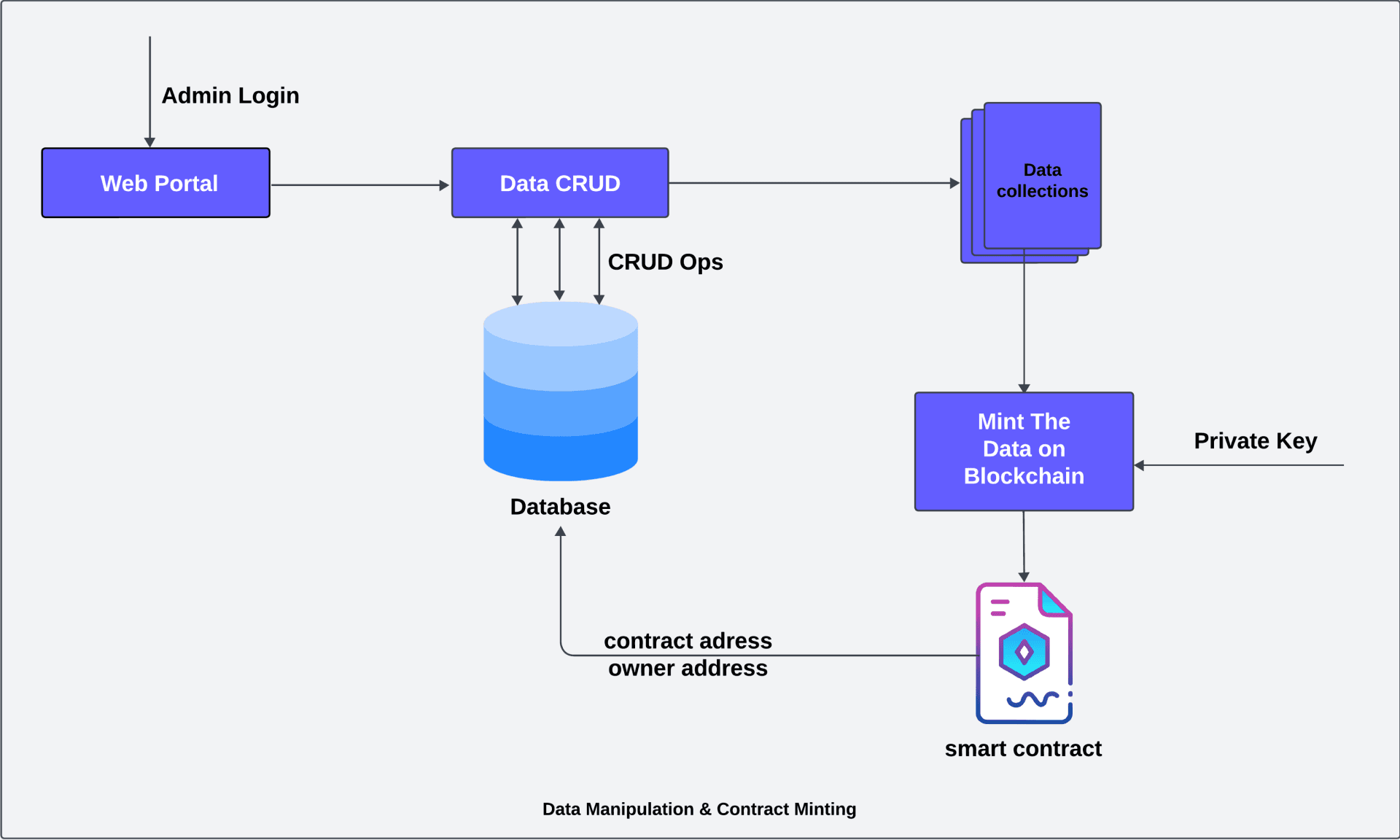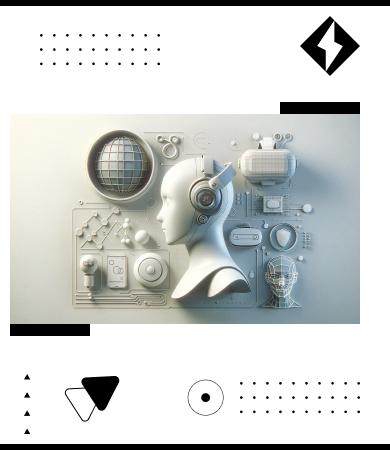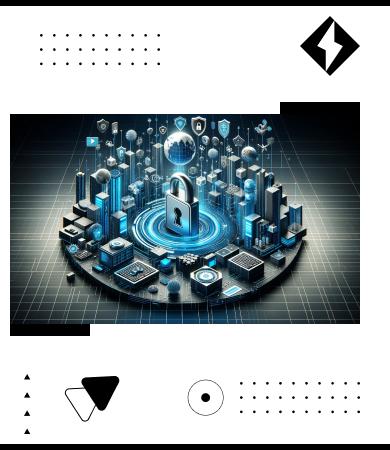Support center +91 97257 89197
Case StudyDecember 5, 2023
Case Study: Revolutionizing Data Ownership and Identity Authentication Through Decentralized Technologies

Project Executed by: Sapient Codelabs
Project Overview:
In an era where data security and ownership are increasingly crucial, Sapient Codelabs embarked on an ambitious project to address the limitations of traditional centralized technologies in managing data ownership, identity verification, and access control. The objective was to create a transparent, user-controlled system utilizing the benefits of blockchain technology and smart contracts.
Challenge:
The central challenge was developing a system that could seamlessly integrate the immutability and transparency of blockchain technology with the efficiency of traditional web technologies. This integration needed to facilitate data ownership transfer and access control in a manner not achievable with conventional systems.
Solution:
Comprehensive Tech Stack Selection:
- Backend: Node.js was chosen for its robustness and efficiency in handling blockchain-related processes. MongoDB was selected for its flexibility in storing unstructured data, and Redis was used for its efficient caching and as an intermediary for process communication.
- Frontend: React.js was employed for its seamless integration capabilities with web3 libraries. Moralis was integrated to facilitate wallet connections and contract interactions directly from the frontend.
- Blockchain Infrastructure: Solidity was the language of choice for smart contract development on the Polygon and Ethereum networks. Polygon was preferred over Ethereum due to its lower gas prices and faster transaction speeds.
- Development and Deployment Tools: Hardhat played a critical role in developing, testing, deploying, and managing smart contracts. It was complemented by third-party services like Alchemy, which provided essential RPC and smart contract deployment capabilities.
Admin Portal Development:
- The project began with the development of an Admin portal, featuring REST APIs for data manipulation before minting onto the blockchain. This portal was exclusively designed for administrative purposes, allowing for controlled data management and preparation before blockchain integration.
Smart Contract Development and Optimization:
- Smart contracts were meticulously developed in Solidity, with initial testing carried out in the Remix IDE. This phase focused on ensuring that the contracts were not only functional but also optimized for gas efficiency, a critical factor in blockchain transaction economics.
- The team faced challenges in integrating Hardhat with Node.js, primarily due to Node.js's single-threaded nature. This was ingeniously addressed by employing Redis as a temporary data store, facilitating seamless communication between Node.js processes and the Hardhat command running as a child process.
Decentralized Application (DApp) Development:
- The DApp required robust user authentication, achieved through wallet connections using the Moralis library and Web3-Ui-Kit for frontend development.
- A dual-layer authentication system was implemented, where the user's wallet address served as a unique identifier. This system ensured that access to data was securely controlled and consistent with the ownership details on the blockchain.
Project Outcomes:

Integration of Decentralized Technologies:
The project successfully integrated blockchain technology with traditional web development practices, addressing the complex challenges of data ownership and identity authentication.
- Technical Accomplishments: The innovative use of Redis to bridge communication gaps between Hardhat and Node.js was a significant technical achievement. Additionally, the project demonstrated the effectiveness of using Polygon over Ethereum for cost and efficiency advantages.
- Enhanced Security and Transparency: By leveraging smart contracts for data ownership transfer and access control, the system set new benchmarks in secure and transparent data management.
- Economical Blockchain Transactions: The focus on gas-efficient smart contracts resulted in a cost-effective solution, making blockchain transactions more viable for users.
Key Blockchain Deployments:
- Contract Address 0x52bE83fEc446AEd87b3d3a1E5f1Dd5888762ff3C
- Contract Address 0xD1B57ddbfB0bf5C8FE9A04b0676f361d0f19C5e4

Conclusion:
Sapient Codelabs' project has established a new paradigm in the application of decentralized technologies for data ownership and identity management. The technical expertise, innovative problem-solving, and strategic use of a diverse technology stack have not only overcome the challenges inherent in such a complex integration but also paved the way for future advancements in the field. This case study serves as a benchmark for similar initiatives, demonstrating the vast potential and applicability of blockchain technology in transforming digital data management and security.
TLDR
This case study explores Sapient Codelabs' project, which successfully integrated traditional web technologies with blockchain to create a system for transparent and efficient data ownership, identity verification, and access control. Key achievements include overcoming technical challenges in integrating Node.js with blockchain processes, optimizing smart contracts for gas efficiency, and employing innovative solutions like Redis for process communication.
FAQs
The main objective was to develop a system capable of managing data ownership and identity verification in a transparent and decentralized manner using blockchain technology.
Node.js was chosen for its efficiency in handling blockchain-related processes and its proven capabilities in the traditional web ecosystem.
The team used Redis as a temporary data store to facilitate communication between Node.js processes and the Hardhat command, overcoming the challenge posed by Node.js's single-threaded nature.
Smart contracts, developed in Solidity, were central to the project, enabling transparent and efficient data ownership transfer and access control on the blockchain.
Key accomplishments included successfully integrating traditional web development with blockchain technology, optimizing smart contracts for gas efficiency, and innovatively using Redis for process communication.
Work with us






